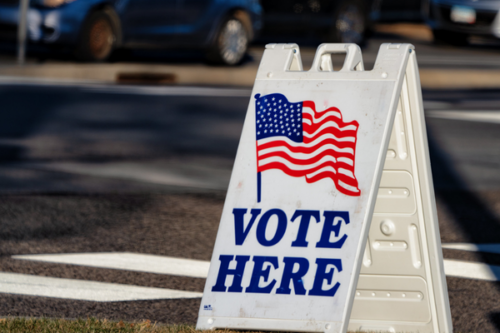Written by Archon Fung, Winthrop Laflin McCormack Professor of Citizenship and Self-Government and Director of the Ash Center for Democratic Governance and Innovation
As the midterm election results come in, most of the attention will focus on whether the Democrats or Republicans end up controlling Congress. As significant as that question is, other, less prominent aspects of the midterm elections may give us indications about a more fundamental question: Is our democracy becoming more fragile? Here are five midterm indicators we should all be watching:
First, how many people will vote? Rousseau wrote that in a healthy democracy, everyone “flies to the assemblies” but “under a bad government no one cares to stir a step to get to them.” Turnout in midterm elections is lower than in presidential years, but 2018 saw forty-nine percent voter turnout, setting a fifty-year record. Election administrators all over the country acted with energy and ingenuity to increase accessibility of voting during the 2020 pandemic election. As a result, turnout rates were the highest in decades. Some places around the country are building upon these innovations in ballot access, while others are making it more difficult to vote by mail, submit ballots, and register to vote. Nevertheless, more than twenty-three million Americans have already voted in the midterms, and experts predict that this will be a relatively high turnout midterm election.
Second, will the deniers deny? The Washington Post reported that over three hundred Republican candidates running for state and national offices have either denied or questioned the outcome of the 2020 presidential election despite the absence of any reliable evidence of wide-spread electoral malfeasance. The prevalence of election denial is an alarming indicator of the fragility of our democracy. Indeed, such denial is unprecedented in American history, and it seems to be unique in the history of mature democracies around the world. If many of those who lose their races reject the outcomes, doubling down on denial will further the unreasonably diminished confidence in our electoral machinery, erode the norm of loser’s consent that is vital to the success of democracy, and ultimately jeopardize the peaceful transfer of power. On the other hand, if the deniers who lose concede — rather than deny — then at least these democratic norms are not further damaged, and we may have an opportunity to reinforce them.
Third, will there be substantial political violence? The attack on Paul Pelosi last week is the most recent prominent instance of a broader trend of increasing political violence and intimidation in the United States. When visiting Wisconsin recently, I had the opportunity to talk with some of the town and city clerks who run the elections there. These are the people who collect the taxes, line up the trash collection contracts, and happen to run elections every other year. My friend who set up the meeting asked me not to mention political violence because the town clerks and their families had suffered so many death threats and abusive messages in the aftermath of the 2020 election.
Political violence is the antithesis of democracy in the form of government by discussion, or even the idea that democracy is making public choices through ballots rather than bullets. There is already far too much political violence and menace in our democratic system. An increase in violence stemming from the midterm elections would continue the decline marked by the violence of January 6th. We should do whatever we can to reinforce the democratic norm of peaceful contestation. Whatever our ideological differences, all Americans should condemn those who terrorize their political adversaries, or even more, the thousands of civically devoted Americans who volunteer or otherwise work to make sure that the rest of us can vote and that our votes will be fairly counted.
Fourth, will partisanship infect election administration? One silver lining of the 2020 election is that many election officials — especially Republican officials like Georgia Secretary of State Bradley Rafensberger — withstood tremendous partisan pressure — often at great professional and personal cost — to properly tabulate the votes and to report the proper counts. Many are concerned that partisans will manipulate election administration through either controlling executive offices such as secretaries of state or by shifting greater control over elections to state legislatures. The next few weeks will either bear out those fears in some states or show that, for now at least, (small-d) democratic professionalism in election administration is holding.
Fifth, what is the appetite for democratic innovation? Transforming our democracy from its current fragility to a robustness in which Americans believe that public leaders are representing them fairly — and that the government is working to solve our many pressing public problems — will require substantial improvements to our political institutions and practices. If the past provides any guide, those improvements will first come from political experimentation in our states and localities. Will Americans match our great frustration with our leaders and institutions with an equal measure of creativity and enthusiasm for upgrading our democracy? We do not know how best to improve our democracy, but efforts all over America in 2022 aim to do just that. For example, there is a top-five open primary initiative in Nevada, a proposal for “fusion” voting in Utah, and proposals and experiments in ranked choice voting in Virginia, Alaska, and several localities across the country. I will be keeping my eye on these down-ballot measures and local efforts because that is where much needed ideas and energy for improving our democracy likely will come from.


